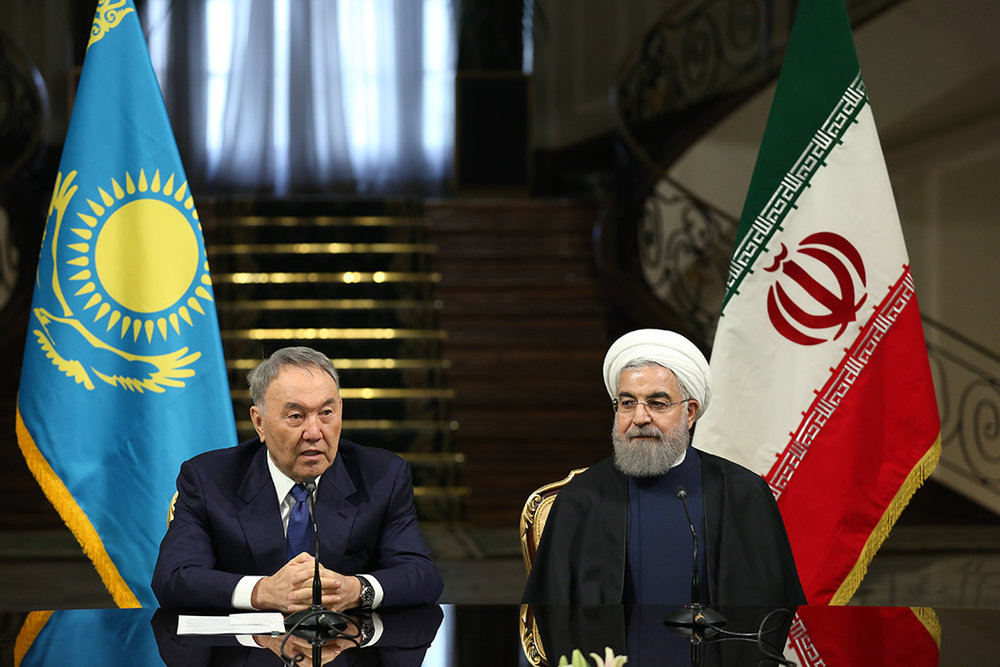Tehran and Astana chart new course, ink 66 documents worth $2b

TEHRAN – Kazakh President Nursultan Nazarbayev arrived at Tehran on Monday to chart a new course in bilateral ties with Tehran, inking 66 documents with a value of 2 billion dollars.
Already in September 2014 President Rouhani heading a high-ranking politico-economic delegation, paid a formal visit to Astana.
“Altogether, as many as 66 cooperation documents were signed between state and private sectors which marks a landmark in bilateral ties between the two countries,” Rouhani noted in a joint press conference with his Kazakh counterpart on Monday.
Nine of the contracts were signed in presence of the two presidents.
Rouhani also emphasized that resumption of banking exchanges between Iranian and Kazakh central banks facilitates inter-banking interaction, noting that supporting the private sector makes inroads into economic flourishing.
A fertile ground for collaboration, inter alia, is the agriculture sector, particularly Iran’s agricultural land leasing in Kazakhstan, Rouhani remarked.
“Moving in the direction of free trade between Iran and Kazakhstan and preferential tariffs between Iran and Eurasia are key economic measures to be taken,” Rouhani was quoted as saying.
Elsewhere in his remarks, the Iranian president maintained that the two sides also exchanged ideas on the Caspian Sea legal status, and its relevant maritime shipping, minerals, tourism, and environmental concerns.
President Nazarbayev, for his part, referred to the agreements made, saying, “66 contracts worth $2 billion were signed in economy, trade, tourism, agriculture, and minerals.”
Also, ahead of the Organization of Islamic Cooperation (OIC) summit slated for April 14-15 in Istanbul, President Rouhani said Iran and Kazakhstan are on the belief that the “the voice of the unity and cooperation of the Islamic world should be heard everywhere in the world.”
Relevant to this, the Kazakh president considered unity among Islamic nations necessary for battling terrorism, saying, “There should be no schism between Iran and Saudi Arabia and this should be resolved through dialogue.”
One day before Nazarbayev’s trip, Kazakh and Iranian governmental and private partners signed memorandums of understanding (MOUs), yielding almost $1 billion in bilateral trade.
It is expected that the contracts will open a new era of cooperation between the two countries, cementing ties in other areas including trade, transportation, technology, industry, banking, shipping, railways, information technology, and energy, Rouhani stated.
Among Central Asian nations, Iran has the strongest political and economic ties with Kazakhstan, which is the biggest country in the region.
AK/PA
